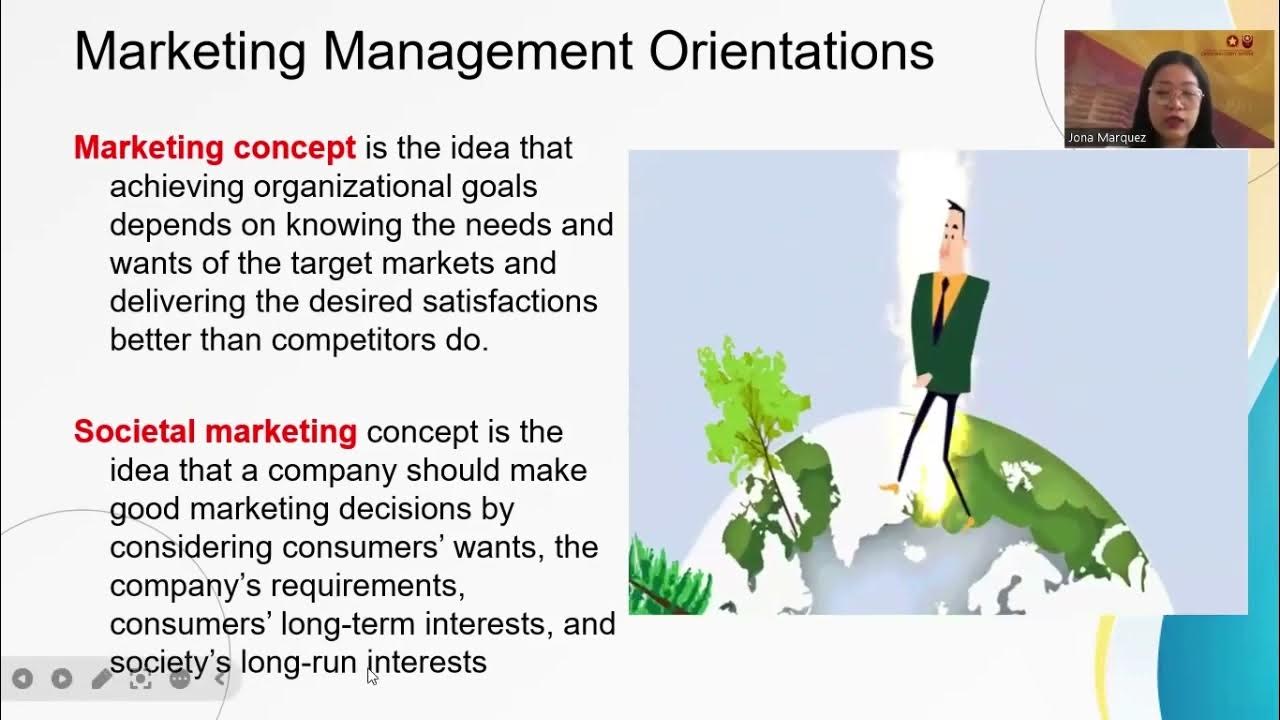Class 16 - Marketing Channels: Delivering Customer Value - Chapter 12
Summary
TLDRProfessor Ahern introduces Chapter 12 on marketing channels, focusing on delivering customer value. The lecture covers upstream and downstream partners in supply chains, the roles of supply and demand chains, and the concept of marketing channels. Examples are provided, such as gum distribution and grocery stores as intermediaries. The lecture also discusses the bullwhip effect, channel conflict, franchises, and distribution intensity, including intensive, exclusive, and selective distribution.
Takeaways
- 📚 Chapter 12 focuses on marketing channels and their role in delivering customer value from the manufacturer to the end user.
- 🔄 The concept of supply chains involves both upstream partners (suppliers of raw materials and components) and downstream partners (retailers and wholesalers).
- 🛒 Downstream partners are crucial for the distribution and marketing of products to end customers.
- 🔑 Understanding supply and demand chains is fundamental to marketing and supply chain management.
- 🏬 Marketing channels can be a set of independent organizations that facilitate the availability of products or services to consumers.
- 🌐 Examples of marketing channels include retailers, wholesalers, and online platforms like Amazon.
- 📈 The 'bullwhip effect' describes the phenomenon where demand fluctuations are magnified at different stages of the supply chain.
- 💬 Channel conflict can arise from disagreements among channel members over goals, roles, and rewards.
- 🔄 Horizontal conflict occurs between firms at the same level of the channel, while vertical conflict happens between different levels.
- 🏢 Franchises are a type of contractual vertical marketing system where a franchisor links different stages of production and distribution.
- 📊 Companies can use multi-channel distribution systems to reach consumers, including direct sales and sales through intermediaries.
- 📦 Distribution intensity refers to the exclusivity and saturation level of a product in the market, with options like intensive, exclusive, and selective distribution.
Q & A
What is the main focus of Chapter 12 in the Principles of Marketing course?
-Chapter 12 focuses on 'Marketing Channels Delivering Customer Value', discussing the concept of channels and channels of distribution from a marketing perspective, particularly how products are distributed and marketed from the manufacturer to the end user.
What is the role of upstream partners in a supply chain?
-Upstream partners are firms that supply raw materials, components, parts, information, finances, and expertise needed to create a product or service. They contribute to the production and supply of the product or service before it reaches the marketplace.
Can you explain the concept of downstream partners as mentioned in the script?
-Downstream partners include marketing channels or distribution channels that look towards the customer. They consist of retailers and wholesalers and are involved after the product or service is completely set, helping to distribute and market the product to end-users.
What is the difference between supply chain and demand chain?
-The supply chain refers to how a firm makes and sells products, including raw materials, productive units, and factory capacity. The demand chain, on the other hand, starts with the need of the target customer and responds by supplying products to fulfill that demand.
How does the concept of marketing channels differ from distribution channels?
-A marketing channel is a set of independent organizations that help make a product or service available for use or consumption by the end consumer. It includes not only distribution but also involves marketing efforts to make the product accessible to consumers.
What is an example of a marketing channel mentioned in the script?
-An example of a marketing channel is a gum manufacturer using grocery stores, convenience stores, or online platforms like Amazon as intermediaries to distribute their gum to end consumers.
What is the Bullwhip Effect in the context of supply chain management?
-The Bullwhip Effect refers to a phenomenon where orders sent to the manufacturer by retailers create larger demand variances than the sales to the end customer. This can cause inefficiencies and exaggerated fluctuations in the supply chain due to poor communication and demand prediction.
What is channel conflict and what are the two types mentioned in the script?
-Channel conflict refers to disagreements among channel members over goals, roles, and rewards. The two types mentioned are horizontal conflict, which occurs among firms at the same level of the channel, and vertical conflict, which happens between different levels of the same channel or supply chain.
What is a franchise organization as described in the script?
-A franchise organization is a contractual vertical marketing system where a franchisor links between several stages of the production and distribution process, allowing franchisees to distribute a brand's products or services under certain agreements and guidelines.
What are the three levels of distribution intensity discussed in the script?
-The three levels of distribution intensity are intensive distribution, where many channels are used to saturate the market; exclusive distribution, where only certain selected distributors are allowed to sell the product; and selective distribution, where a subset of agreed-upon distributors is chosen to sell the product.
How does a multi-channel distribution system work as explained in the script?
-A multi-channel distribution system involves a producer using more than one channel to distribute products to customers. For example, a technology company like Apple might sell directly to customers, through retailers, or through distributors to business segments, using various channels like stores, online platforms, and dealer networks.
Outlines

此内容仅限付费用户访问。 请升级后访问。
立即升级Mindmap

此内容仅限付费用户访问。 请升级后访问。
立即升级Keywords

此内容仅限付费用户访问。 请升级后访问。
立即升级Highlights

此内容仅限付费用户访问。 请升级后访问。
立即升级Transcripts

此内容仅限付费用户访问。 请升级后访问。
立即升级浏览更多相关视频

Class 28 - Creating Competitive Advantage - Chapter 18

Topic 1 - Marketing Managing Profitable Customer Relationships

MARKETING CH-1 (PART - 3) ( PHILIP KOTLER 15TH EDITION) || HPSC PGT COMMERCE 2023, IBPS SO EXAM 2023

O que é Marketing? Conceito de Marketing - Aula de Marketing

1503lamsPhilip Kotler Marketing Mantra CCDVTP

Marketing Management Kotler & Keller - Chapter 1
5.0 / 5 (0 votes)
